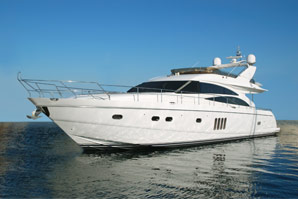TUESDAY, JULY 7, 2015
 With the start of boating season, now is a good time to remind your clients about the dangers of carbon monoxide produced by their vessels, along with the steps they can take to protect all onboard from serious, life-threatening medical condition. With the start of boating season, now is a good time to remind your clients about the dangers of carbon monoxide produced by their vessels, along with the steps they can take to protect all onboard from serious, life-threatening medical condition.
Carbon monoxide (CO) is a colorless, odorless, and tasteless gas that is essentially undetectable by human senses. It is heavier than air and tends to settle both in the lower portions of a boat and on the water immediately surrounding a vessel. When inhaled, it interferes with the blood's ability to carry oxygen, causing serious injury, even death for boaters.
Carbon monoxide is a component of combustion engine exhaust gases - if you can smell exhaust, then CO is present. Carbon monoxide is also produced when propane, charcoal, or oil is used to power onboard appliances such as a stove, grill, hot water heater, or generator.
Because the most common source of carbon monoxide is the running engine, boat owners need to carefully inspect exhaust systems, including risers, hoses for cracks or pinholes and be sure they are securely connected. Even when vessel's mechanical systems are functioning properly, carbon monoxide often will accumulate around the transom while the vessel is underway. Make sure the vessel is adequately ventilated while underway and that all engines are off while swimmers are in the water. Don't let passengers sit too close to the transom and know the warning signs of CO exposure. They include headache, fatigue, shortness of breath, nausea, dizziness, and flu-like symptoms without a fever.
Since carbon monoxide is colorless and odorless, the installation of CO detectors aboard all recreational boats is strongly recommended. The American Boat and Yacht Council now requires all new boats with gasoline inboards or generators to have a CO detector installed. Be sure to select a carbon monoxide detector designed for marine use. These are calibrated at a significantly different standard than household detectors. By following these simple steps, boaters can reduce the chance of CO poisoning occurring on their vessels.
For more information about boat insurance, give Casey Insurance Group a call at 888-537-1412 today!
(Source:seaworthyinsurance.com)
No Comments
Post a Comment |
|
Required
|
|
Required (Not Displayed)
|
|
Required
|
All comments are moderated and stripped of HTML.
|
|
|
|
|
|
NOTICE: This blog and website are made available by the publisher for educational and informational purposes only.
It is not be used as a substitute for competent insurance, legal, or tax advice from a licensed professional
in your state. By using this blog site you understand that there is no broker client relationship between
you and the blog and website publisher.
|
Blog Archive
2023
2022
2019
2018
2017
2016
2015
2014
2013
2012
|